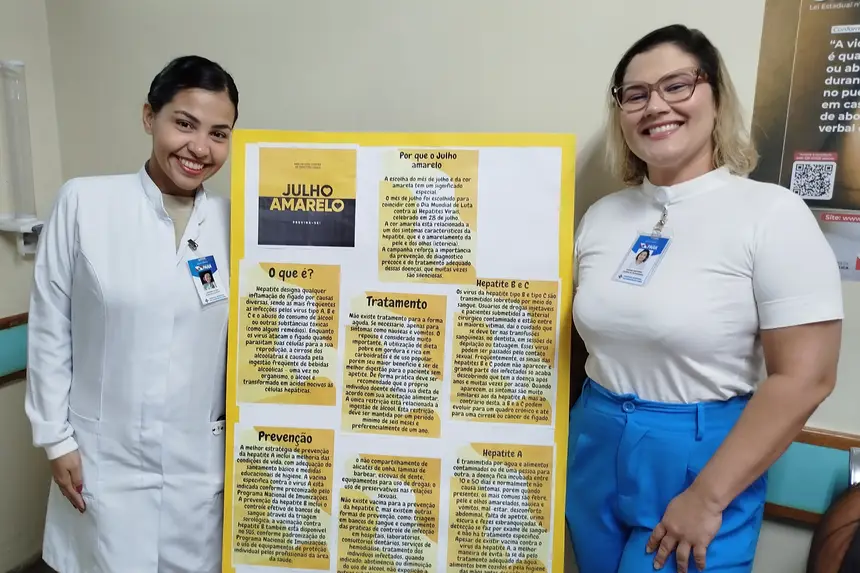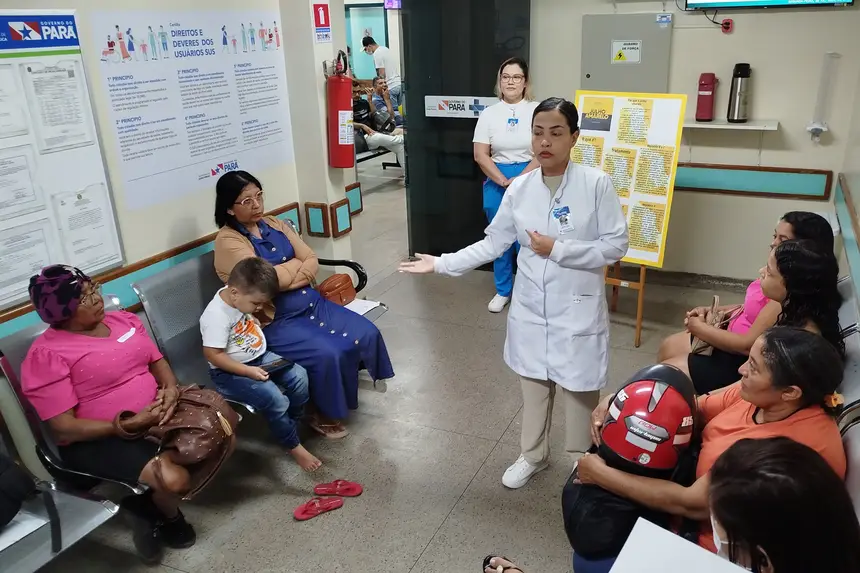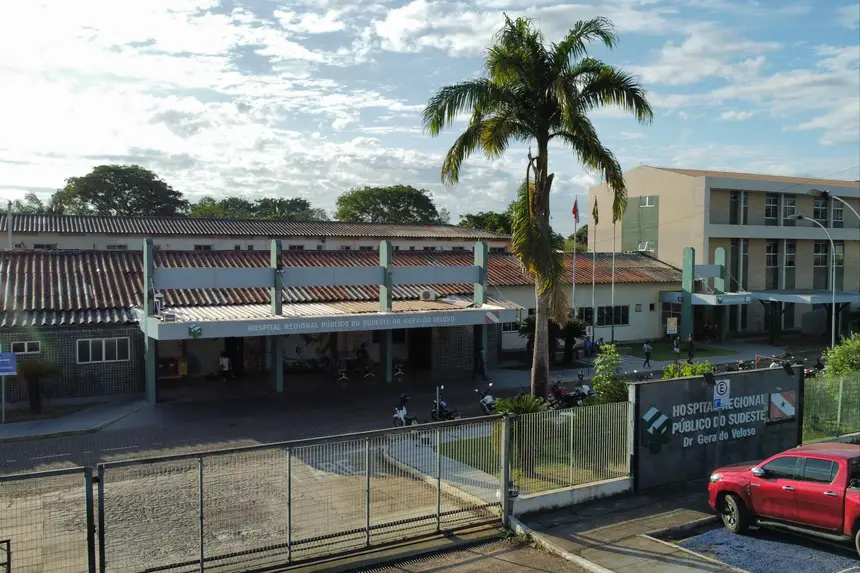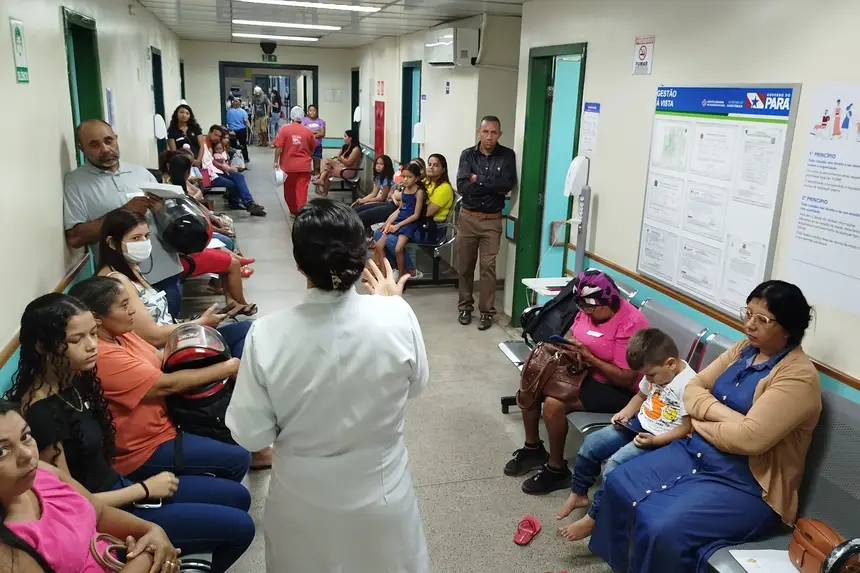Southeast Regional Hospital alerts for prevention of viral hepatitis with educational lecture
The action of the Health in Focus Project reinforces the importance of early diagnosis and daily care to avoid serious complications such as cirrhosis and liver cancer
In commemoration of World Hepatitis Day, celebrated this Monday (28), and the actions of Yellow July, a campaign dedicated to raising awareness and preventing these diseases, the Southeast Regional Hospital of Pará – Dr. Geraldo Veloso (HRSP), in Marabá, held an educational lecture on the prevention, diagnosis, and treatment of hepatitis. The initiative was aimed at patients and companions waiting for care at the unit.
The action is part of the "Health in Focus" Project, developed by the Humanization Sector, which seeks to transform waiting time into a moment of welcome and information. The proposal is to humanize care and raise awareness about essential topics for health promotion and disease prevention.

While waiting for a consultation with the otorhinolaryngologist, Ana Silva, 43 years old, a resident of the municipality of Bom Jesus do Tocantins, said she learned important information. "I didn't even know that viral hepatitis was related to the liver. Now that I understand, I will be more careful and pass this information on to my family and friends," she said.
Information - During the lecture, participants were informed about the main types of viral hepatitis A, B, C, D, and E, modes of transmission, and prevention. In Brazil, the most common are A, B, and C: the first is usually acquired through the consumption of contaminated water or food, while hepatitis B and C are transmitted through contact with blood or unprotected sexual relations.
The World Health Organization (WHO) estimates that 304 million people live with chronic hepatitis B or C. Every year, 2.2 million new cases are recorded, and approximately 1.3 million deaths occur due to complications such as cirrhosis and liver cancer. Viral hepatitis is among the leading infectious causes of death on the planet, alongside tuberculosis, which reinforces the importance of prevention and early diagnosis.

Awareness and prevention - The lecture was conducted by Leandra Alves, nurse responsible for the Hospital Infection Control Service of HRPS. She emphasized that raising public awareness is one of the main strategies to reduce new cases. "Viral hepatitis can be silent, and therefore many people only discover the disease in advanced stages. Information is our greatest ally in preventing serious complications," she explained.
The professional reinforced essential care, such as keeping vaccinations up to date, using condoms during sexual relations, not sharing sharp or piercing objects, razors, and nail clippers, and ensuring proper hygiene of water and food. "These are simple actions, but they protect not only those who adopt these precautions but also their family and the community," she added.
Leandra Alves, who works at the unit - managed by the Institute of Social and Environmental Health of the Amazon (ISSAA) and the State Department of Public Health (Sespa) - advised on the most common symptoms of the disease, which include excessive fatigue, fever, abdominal pain, dark urine, yellowed skin or eyes, and nausea. "In case of suspicion, seek the nearest Basic Health Unit," said the nurse.

Treatment varies according to the type of hepatitis and the definition of the condition, whether acute or chronic: hepatitis A usually has spontaneous recovery, while types B and C require monitoring and, in some cases, antiviral medications. "When the diagnosis is made early, we can start treatment at the right time and avoid serious complications such as cirrhosis and liver cancer," concluded the professional.
Service: Care at the Southeast Regional Public Hospital is 100% free, provided through the Unified Health System (SUS). The unit has 135 beds, of which 97 are for clinical hospitalization and 38 are for Intensive Care Units (ICUs).










